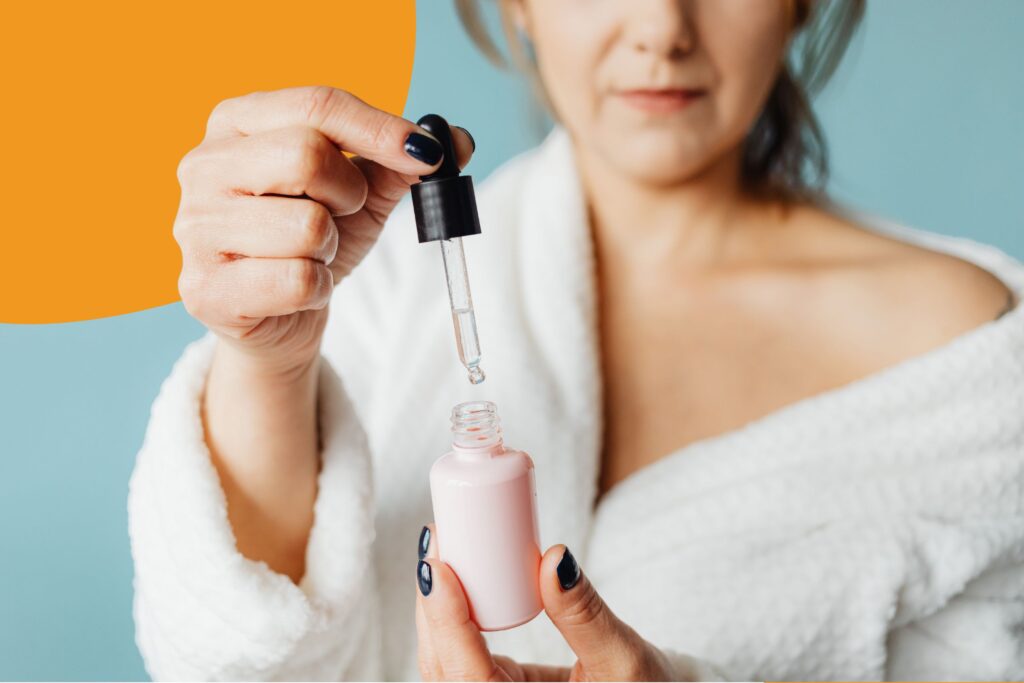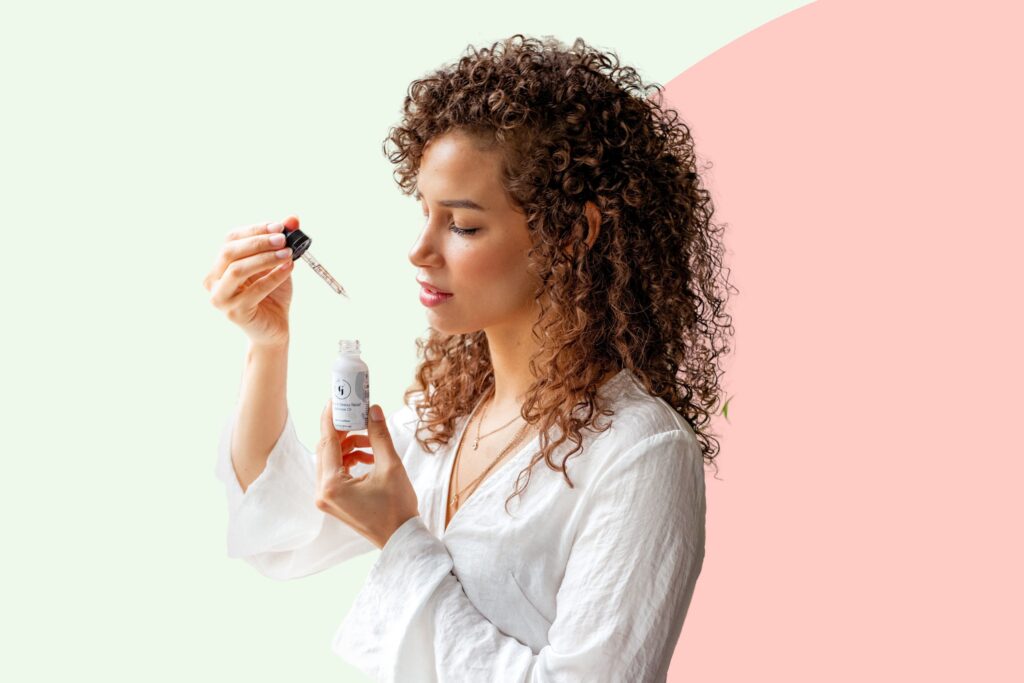Here’s a fun fact that you’ve definitely heard before; our skin is the body’s largest organ. Not only that, but it also plays a vital role in maintaining overall health and wellness, and however many times you’ve heard that, it still bears repeating. Yep, your skin is one very impressive part of you.
Among its many functions, the skin protects the body against infection, regulates body temperature, and controls vitamin D production. They say that your skin’s condition speaks volumes about your overall health, and, as such, a radiant glow should be treated as something so much more than simply cosmetic.
In this modern age of innovation and scientific research, there are now a number of incredible skin care ingredients that can have radical benefits for your skin, and your health in general. As such, you should be scrutinising cosmetics labels accordingly for their presence. With that in mind, here are 11 skin care ingredients you should be prioritising.
Vitamin C
Vitamin C helps to improve the appearance of your skin by brightening it and making it look more radiant. It can also help protect your skin from environmental damage.
Now, one of the beauty industry’s go-to vitamins for improving your skin’s appearance is Vitamin C, and once you know that, you’ll start to notice that it’s infused in everything from moisturisers to serums.
Combined with your daily skincare routine, applying Vitamin C topically to your skin in serum form can encourage collagen production, helping reduce wrinkles and blemishes.
And of course, getting Vitamin C in your diet will also help with collagen production, too. Is there anything it can’t do?!
Hyaluronic Acid
Hyaluronic acid is a substance that’s naturally produced by our skin cells, playing an important role in maintaining the skin’s moisture levels. The skin can often be deficient in this important acid, however, thanks to factors such as environmental contaminants, or simply due to age.
This deficiency then causes the skin to dry out, often causing dullness, skin sensitivity, uneven tone and texture, and fine lines. The easy and natural fix? Apply hyaluronic acid to your skin in order to replenish these levels. Accordingly, you will find it as an ingredient in some moisturisers and serums.
It should be noted that having the name acid in the title is a little misleading as hyaluronic acid is a super nourishing and hydrating ingredient.

Retinol
Retinol based products are becoming increasingly common in skincare products, because retinoids help to improve the appearance of fine lines and wrinkles.
As you age, changes happen to your skin in tandem, and you may start seeing fine lines, one of the earlier signs of ageing. Because the skin loses its elasticity, it also becomes thinner and more prone to damage from environmental factors like pollutants and the sun’s harmful UV rays. After a while, the lines deepen, forming wrinkles visible on the face, neck, and hands. Enter retinol.
This substance can be effective in smoothing the surface area of the skin, aiding with the overall appearance. If using retinol based products, it’s recommended that they’re applied according to the particular product’s instructions, but generally only in the evening or at night (for example before bed) as this will make the skin sensitive to sunlight after application.
You’ll find this as a popular ingredient in night creams, but retinol products can be strong and, accordingly, shouldn’t be approached flippantly. It’s vital to seek out only trusted names for skincare products, such as SkinCeuticals Retinol, whose product helps minimise lines and wrinkles, are soothing and gentle to the skin, and promotes a healthier glow.
Vitamin E Skincare
Vitamin E is especially beneficial for helping to prevent early signs of ageing, such as fine lines, wrinkles, and age spots. Indeed, vitamin E is a powerful antioxidant that protects your skin against free radicals and other collagen destroying pollutants. It also has major moisturising and soothing properties and it’s great for dry skin. Oh, and it’s often called tocopherol in ingredients labels, just in case you’re truly scrutinising those labels.

Avocado Oil
Scientists have known for some time that avocado oil has many benefits when ingested as part of a varied diet. Many of these positives can also be enjoyed when applied to the skin, meaning that we are now seeing this oil incorporated as an ingredient in skincare products.
Most particularly, avocado oil is rich in fatty acids which helps the skin to heal issues and blemishes, and has been found to improve symptoms of psoriasis, a skin condition that manifests in bumpy red and white scaly patches on the skin. Not just for brunch, indeed.
Read: Key ingredients you should look for when buying skincare products
Squalane
Squalane might sound like a scientific mystery, but it’s actually a skin-loving ingredient that your body is already familiar with. Our skin naturally produces squalene (note the ‘e’), but our production decreases as we age. This is where squalane (with an ‘a’) comes in – it’s the more stable, skincare-friendly version derived from plant sources like olive oil and sugarcane.
fThis lightweight oil absorbs quickly without feeling heavy or greasy, helping to lock in moisture and strengthen the skin barrier. You’ll often find it in facial cleansing products, where it excels at gently dissolving makeup and daily grime while maintaining the skin’s moisture balance – none of that tight, stripped feeling that some cleansers can leave behind.
Squalane suits virtually all skin types, from dry to oily and even sensitive skin, and appears in various products from facial oils to moisturisers. For those concerned about sustainability, most brands now source their squalane from plant-based alternatives rather than traditional shark-derived sources.
Nanosilver
Nanosilver, as the name suggests, is micro particles of the precious metal, silver. Silver has been shown to have powerful properties when it comes to combating bacteria, viruses and fungi. It has therefore been widely used as an antibacterial treatment in medicine. Nanosilver, in turn, has started to be used in cosmetics and skincare products as a powerful cleansing component, but it’s important to note that debate continues as to whether it’s beneficial or harmful, overall, to the skin.
Read: 7 simple steps, IDEAL for a glowing complexion
Argan Oil
Argan oil is a natural oil which is derived from the kernels of the fruit of the north African argan tree. This oil has been a part of Moroccan cuisine for a very long time, and in more recent times has been incorporated into medicinal use for its range of beneficial properties, from antioxidant and anti-inflammatory properties to possible preventative effects for heart disease and diabetes.
These benefits have now been realised by the cosmetic industry, with argan oil now available for both application to the skin, and as an ingredient in topical products. Through this kind of application, argan oil is a powerful moisturiser, as well as helping to treat skin conditions, acne, and helping to heal wounds and infections.

Alpha Hydroxyl Acids (AHAs)
Alpha hydroxyl acids are also known as AHAs, and are natural acids most commonly derived from citrus fruits such as oranges and lemons, as well as, sometimes, other natural ingredients such as sugar cane, grapes and even milk. AHAs are a highly effective exfoliant, removing dead skin cells and therefore improving the clarity and smoothness of the skin.
By exfoliating the skin and removing dead cells, you may also help to improve underlying skin issues such as age spots, acne and wrinkles.
Types of AHAs include:
- Phytic acid which one of the more gentle AHAs and is a powerful antioxidant that helps protect the skin from environmental damage.
- Glycolic acid is known for brightening and refining skin texture and tone. It’s a great exfoliator too.
Salicylic Acid (BHA)
Salicylic acid can help unclog pores and prevent breakouts by dissolving excess sebum on your skin surface. It is a common ingredient in anti-acne products. However, overuse can result in dehydration, so it’s not recommended to use products containing salicylic acid everyday. Always consult with the specific product’s packaging for accurate instructions on how best to use salicylic acid in your skincare routine.
Niacinamide
Niacinamide is also known a vitamin B3 or nicotinic acid. It can be beneficial for the health and appearance of skin in multiple ways, such as managing uneven skin tone, reducing pore size, improving skin dullness and reducing the appearance of wrinkles.
It works by acting on the natural components in the skin to encourage the skin to improve its barrier, which acts to defend skin cells from environmental factors and so improve dullness, large pores, wrinkles and other external signs. Like many of the ingredients on our list, its active components can be absorbed by the skin for almost instant effect. One of the stand-out advantages of niacinamide is that it is extremely versatile; it’s suitable for almost every skin type and can be used with skin which has pretty much any type of condition.
And with that, we’re off to wash our face; we think we’ve sampled a few too many products in the course of writing this article!





